Journalists' $80 million vote
The All-NBA selection puts both players and media in an agonizing position

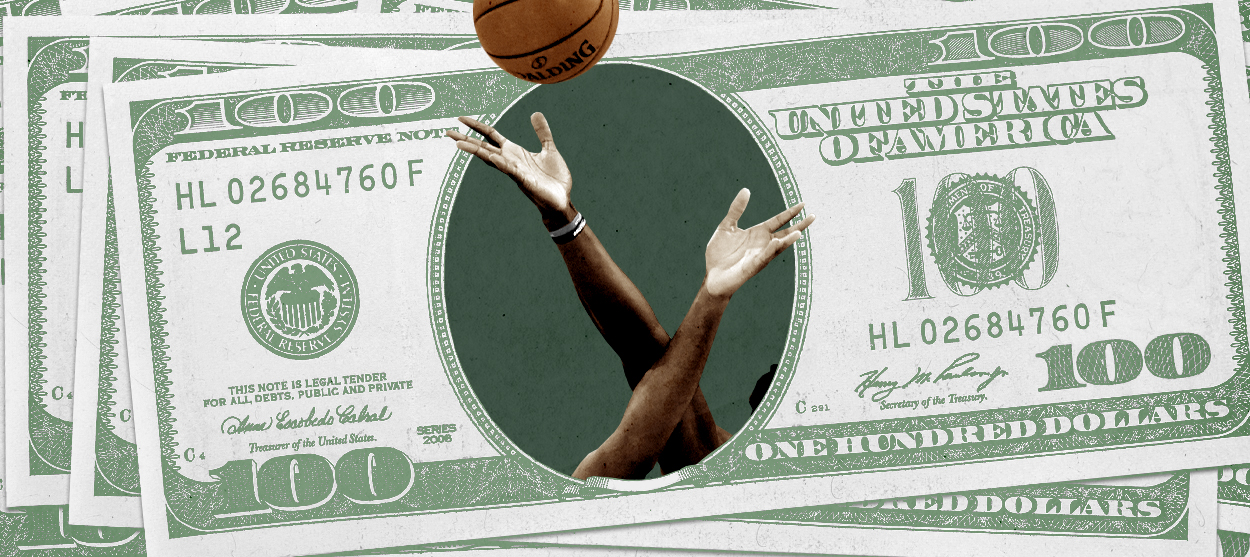
A free daily email with the biggest news stories of the day – and the best features from TheWeek.com
You are now subscribed
Your newsletter sign-up was successful
Imagine if corporate America entrusted business reporters with choosing which CEOs get the fattest bonuses. Or if Hollywood assigned film critics to pick the actors who can receive top pay. Or if the NBA tasked media members with voting on which basketball players can obtain the most lucrative contracts. Giving journalists such unfathomable power over the earnings of people they cover would constitute a flagrant conflict of interest, right?
Not in the NBA's eyes. Earlier this month, 100 reporters, columnists, and broadcasters submitted their ballots for the 15 best players out of the league's roughly 450 to form this season's All-NBA teams, which will make some of the honorees eligible for an eight-figure raise. Many journalists agonize over the fact that their decisions can make or cost a player up to $80 million; others seem thrilled to hold such sway over basketball owners' checkbooks. But eligibility for "supermax" contracts has to be determined somehow, and as Dallas Mavericks owner Mark Cuban told me, "I don't know of a better way."
The NBA's owners and players met four years ago to address a growing problem: stars ditching the teams that drafted them as quickly as they chuck towels on the sideline. Every team was constrained by the same salary cap and couldn't pay any single player more than the maximum contract, worth up to 30 percent of the cap. So, if the Utah Jazz drafted a player who blossomed into a star, the Jazz had no leverage to keep him from fleeing Salt Lake as soon as his rookie deal expired. The NBA's controversial solution was to give the Jazz in that scenario the exclusive right to offer a supermax contract, worth 35 percent of the cap — or tens of millions more than rivals can bid. In order to qualify for a supermax, a player must make the All-NBA team in the most recent season, or in two of the past three. (Stars named Most Valuable Player or Defensive Player of the Year are eligible, too.) The league also made young All-NBA honorees still under their rookie deal eligible for extremely lucrative pay bumps.
The Week
Escape your echo chamber. Get the facts behind the news, plus analysis from multiple perspectives.

Sign up for The Week's Free Newsletters
From our morning news briefing to a weekly Good News Newsletter, get the best of The Week delivered directly to your inbox.
From our morning news briefing to a weekly Good News Newsletter, get the best of The Week delivered directly to your inbox.
Suddenly, All-NBA became the most consequential award in sports. There's no doubt the 10 superstars who make the first and second teams every year will fetch the most eye-popping salaries possible. But the All-NBA third team, previously an afterthought, now has league insiders biting their nails. Two years ago, Charlotte Hornets star Kemba Walker was one of two guards named to the third team, barely beating out Klay Thompson of the Golden State Warriors and Bradley Beal of the Washington Wizards thanks to a handful of votes from journalists like the Miami Herald's Anthony Chiang and the Memphis Commercial Appeal's David Cobb. Charlotte now had the chance to re-sign Walker for $80 million more over the course of a multi-year deal than competitors were able to offer, while Beal and Thompson potentially lost out on roughly $30 million. When Thompson got the news during a media scrum he bowed his head and closed his eyes, visibly pained by the snub.
"You'd be naive to think politics doesn't play into a lot of these decisions," Beal's agent, Mark Bartelstein, told me. Wanting no part of that, The New York Times, The Washington Post, Los Angeles Times, and Indianapolis Star prohibit their staffs from voting, and several journalists at other outlets have stopped participating. Those who do vote are well aware of what's at stake. ESPN writers Brian Windhorst and Tim MacMahon spent a recent podcast assessing the 35 or so players this season with a shot at being named All-NBA. MacMahon pointed out that two young stars in the mix, Boston Celtics forward Jayson Tatum and Utah Jazz guard Donovan Mitchell, have up to $32 million riding on the vote, "not that that should impact anyone's decision." Windhorst disagreed, to his co-host's disbelief.
"My policy has been if it's a tie, I'm giving it to the guy who's getting the extra $30 million," Windhorst told me afterward. For a deeply sourced reporter like Windhorst, the final weeks of the season provide an amusing role-reversal: a deluge of calls from agents lobbying on behalf of their clients. When we spoke, Windhorst had just received a lengthy text from an agent making an All-NBA argument with the level of detail he might bring to a contract negotiation.
"It's so much money, I can't believe the players themselves aren't writing every single voter a note," Windhorst said, "or sending them all a gift card — not that I endorse bribery." He's not worried that voting against a player, agent, or team's interests could cost him access down the line. "If a source would hold my objective view of the league against me," he says, "we're not going to have a very long relationship."
A free daily email with the biggest news stories of the day – and the best features from TheWeek.com
Some voters spend dozens of hours stressing over their ballot, studying advanced statistics and canvassing assistant coaches and scouts for advice. "I take it very seriously," Sports Illustrated's Howard Beck told me. "Whatever people think of the media, we are comparatively, and indisputably, the most objective body to assess these honors."
After all, what's the alternative? Team general managers, who'd face much more serious conflicts of interest? Players, notorious for goofing around when voting for the all-star game? Fans, who would stuff the ballot box for home-team favorites and stars who play the most games on national TV?
The NBA stopped giving votes to local TV announcers employed by teams a few years ago, bowing to criticism of these voters' inherent bias. However, the league does send about 30 ballots to its national broadcasting partners, ESPN and Turner. One writer in each of the league's 28 markets gets a vote, as do several reporters from foreign outlets like the Italian tabloid La Gazzetta dello Sport and the Chinese conglomerate Tencent. Ballots are collected and counted by the accounting firm Ernst & Young, meaning nobody knows the award recipients until they're announced during the playoffs.
The list of each season's voters is supposedly kept secret until the awards are revealed, but the league gives the list to teams seeking to lobby for their players. (And teams invariably pass the list to agents.) Team officials often phone voters and send them video highlights and stat sheets, and team PR departments are famous for mailing gimmicky campaign freebies: a plush doll of Anthony Davis, a hard-bound book with a screen inside playing James Harden's highlights, a brush and paint bucket advertising how Al Jefferson was dominant in the painted area underneath the basket. This season, All-Rookie contender Jae'Sean Tate of the Houston Rockets worked with a local coffee company to send media voters a bag of his custom brew, and the Philadelphia 76ers spent thousands of dollars to produce custom trading cards for four players contending for awards.
Most of this extravagant campaigning, however, is for awards honoring rookies, coaches, or defensive specialists. Team lobbying for All-NBA honors is strangely subdued — perhaps because some teams have reason to silently root against their players. Having a player named All-NBA can force owners to shell out a supermax contract, which in turn forces the team to cut costs elsewhere on the roster to stay under the salary cap. Chris Hine, who covers the Glen Taylor-owned Minnesota Timberwolves for the Taylor-owned Minneapolis Star-Tribune, voted last season but opted out this year. Taylor sold the Timberwolves this month, likely to the relief of Star-Tribune staff.
(If all this sounds like a recipe for trouble, it could be worse: In 2007, Boston Red Sox pitcher Curt Schilling signed a contract promising him a $1 million bonus if he earned a single baseball writer's vote for the Cy Young award, leading Schilling to joke that he should just "bribe" a voter. The writers association retaliated by making players with vote-based bonuses ineligible for awards.)
This year's final All-NBA spots could easily be decided by a single-digit vote margin. A pandemic-shortened season in which dozens of players missed games due to COVID-19 protocols turned the brutally imperfect science of filling out a ballot into a virtual crapshoot. There are legitimate cases that the final guard spot should go to any one of Donovan Mitchell, Devin Booker, Zach LaVine, Trae Young, Bradley Beal, Kyrie Irving, Russell Westbrook, or Jrue Holiday. Mitchell has the most riding on the outcome — $32,600,120, to be exact.
Several journalists told me they deeply resent being responsible for players' earning potential, but voting for something as prestigious as All-NBA honors is too special to pass up. Players recognize that, short of winning MVP, being named All-NBA is the sport's greatest individual achievement. Sixers center Joel Embiid learned he was left off the third team last year while his first child was being born, and Embiid has said it took him a while to overcome his disappointment and focus on bigger events at hand.
ESPN's Jackie MacMullan, one of the league's most respected and well-connected reporters, says voting can feel like more trouble than it's worth. She had inside access to a player but, after a recent season, decided to leave him off her All-NBA ballot. "He hasn't spoken to me since," MacMullan says.
This kind of voting, she added, "is not for the faint of heart."
Danny Funt is a senior editor at The Week. His writing has appeared in the Columbia Journalism Review.
-
 ‘Restaurateurs have become millionaires’
‘Restaurateurs have become millionaires’Instant Opinion Opinion, comment and editorials of the day
-
 Earth is rapidly approaching a ‘hothouse’ trajectory of warming
Earth is rapidly approaching a ‘hothouse’ trajectory of warmingThe explainer It may become impossible to fix
-
 Health insurance: Premiums soar as ACA subsidies end
Health insurance: Premiums soar as ACA subsidies endFeature 1.4 million people have dropped coverage
-
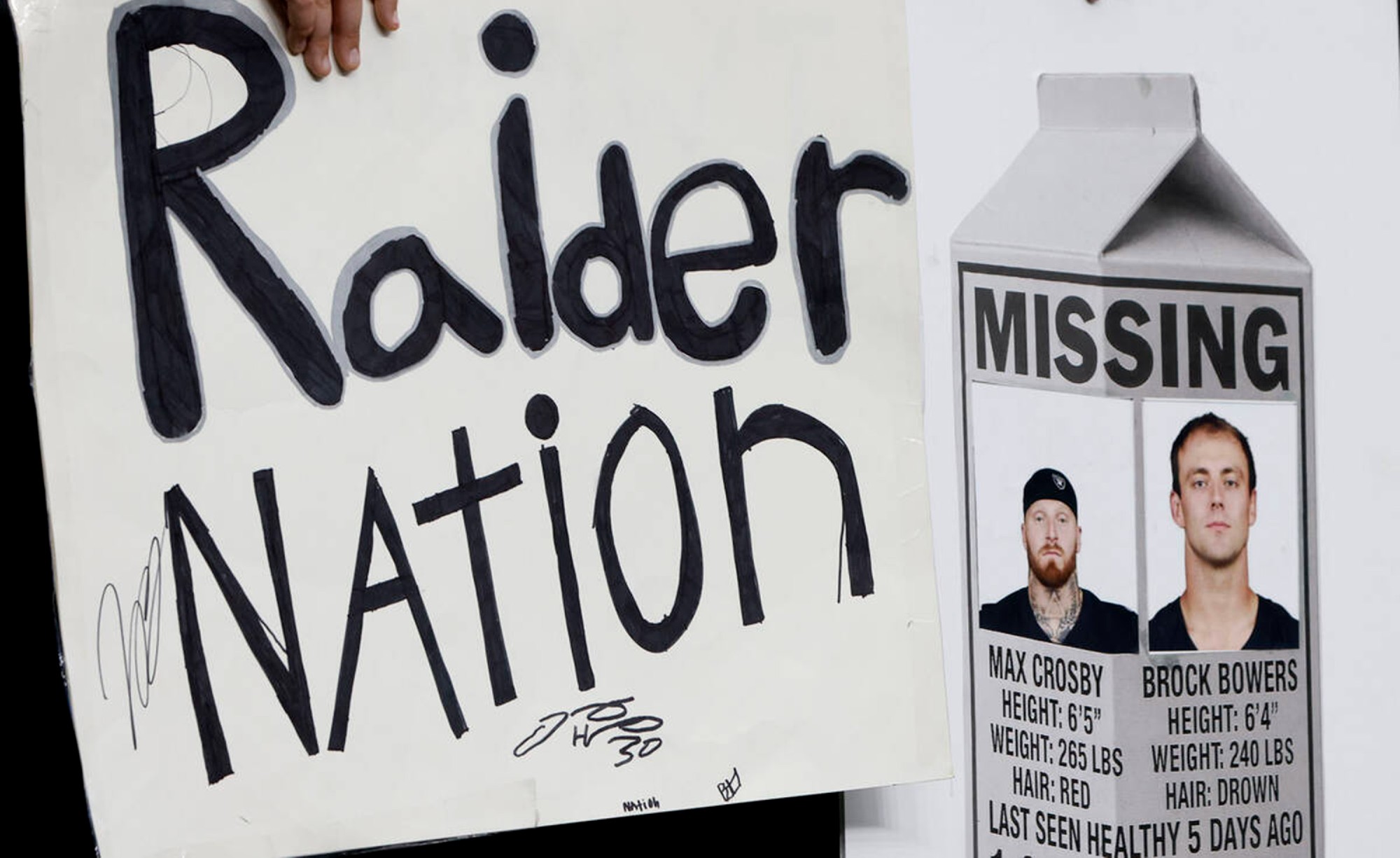 Is tanking ruining sports?
Is tanking ruining sports?Today's Big Question The NBA and the NFL want teams to compete to win. What happens if they decide not to?
-
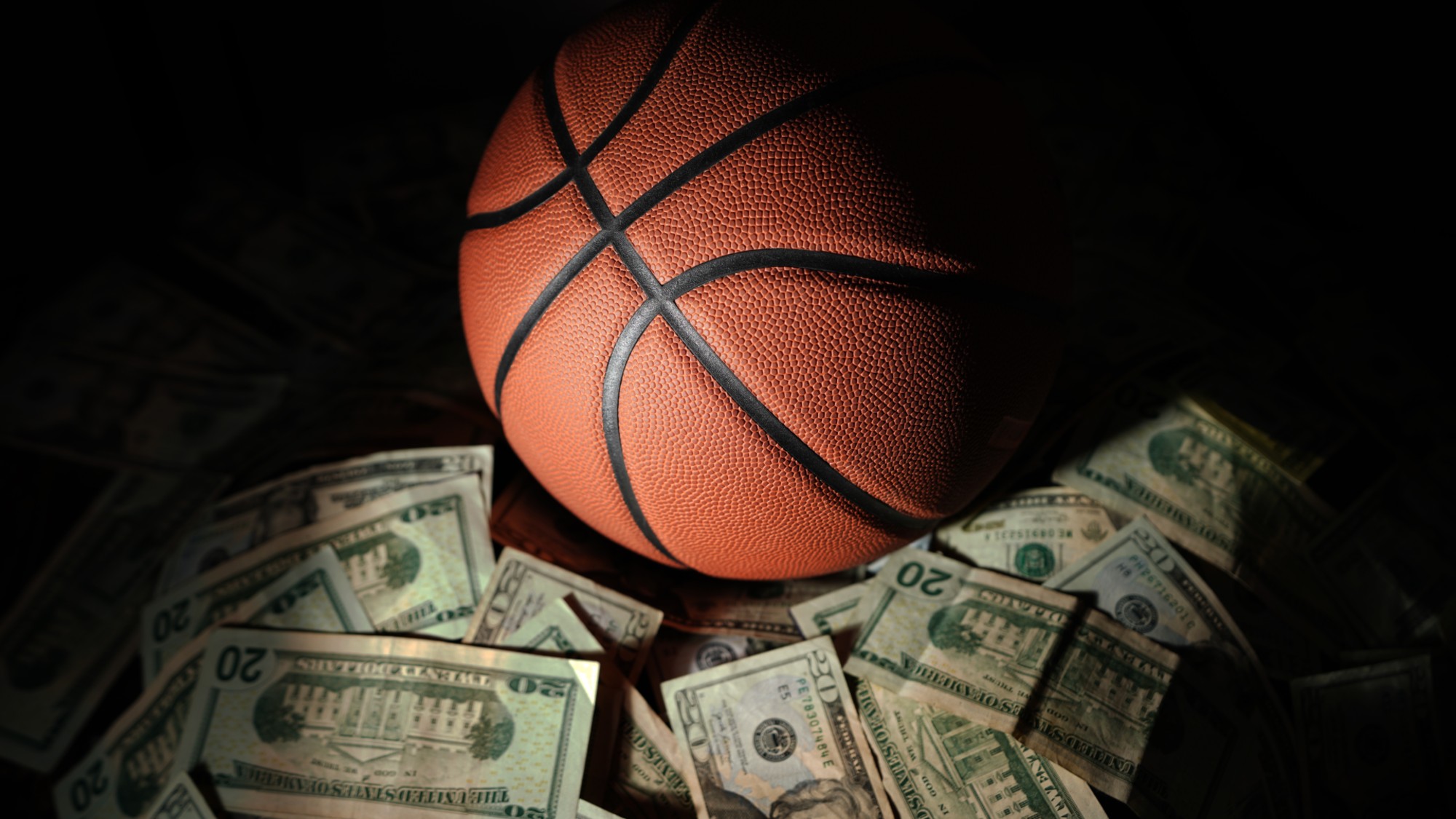 Can the NBA survive the FBI’s gambling investigation?
Can the NBA survive the FBI’s gambling investigation?Talking Points A casualty of the ‘sports gambling revolution’
-
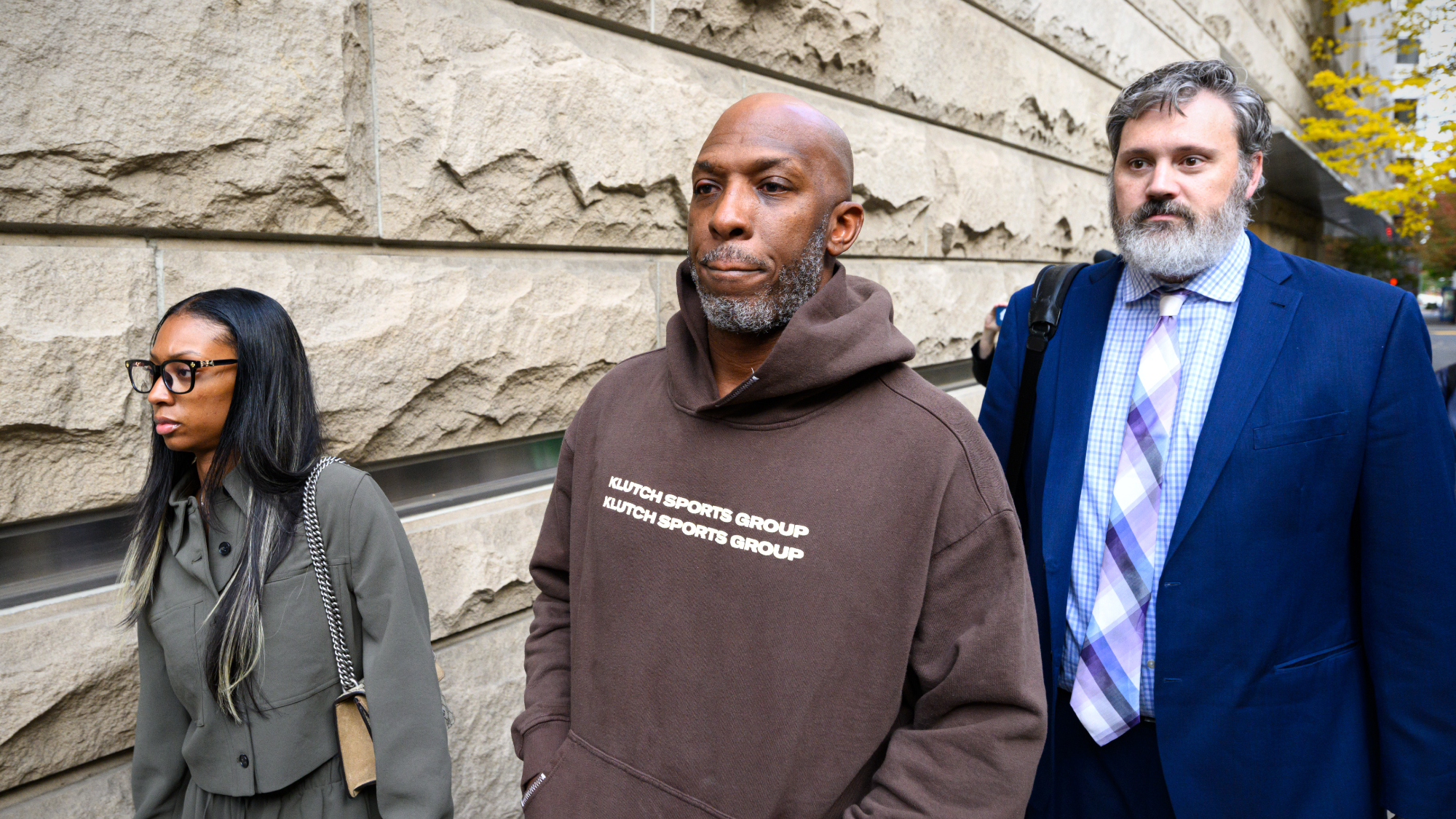 FBI nabs dozens in alleged NBA gambling ring
FBI nabs dozens in alleged NBA gambling ringSpeed Read Portland Trail Blazers head coach Chauncey Billups and Miami Heat guard Terry Rozier are among 34 people indicted in connection with federal gambling investigations
-
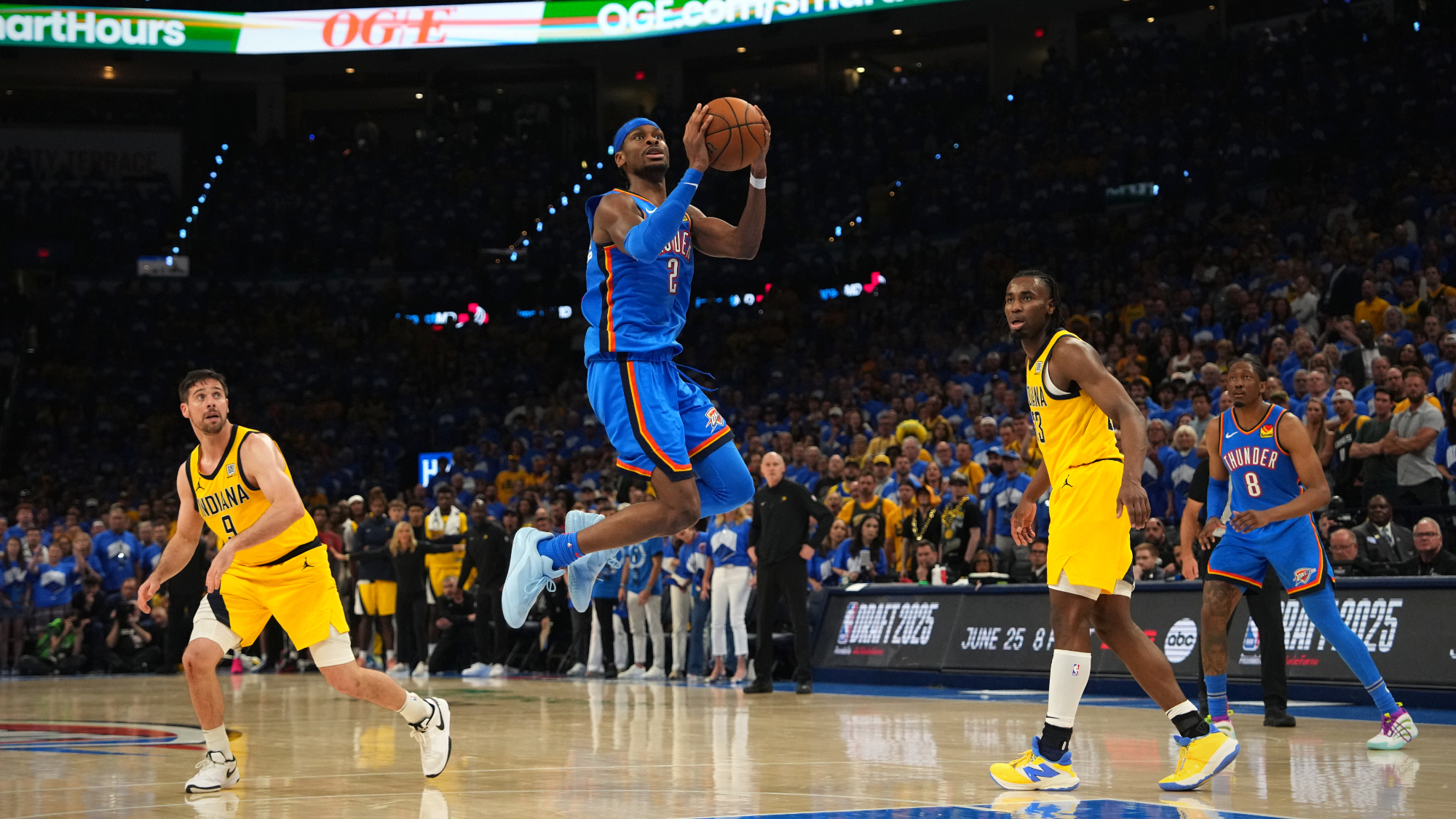 Thunder beat Pacers to clinch NBA Finals
Thunder beat Pacers to clinch NBA FinalsSpeed Read Oklahoma City Thunder beat the Indiana Pacers in Game 7 of the NBA Finals
-
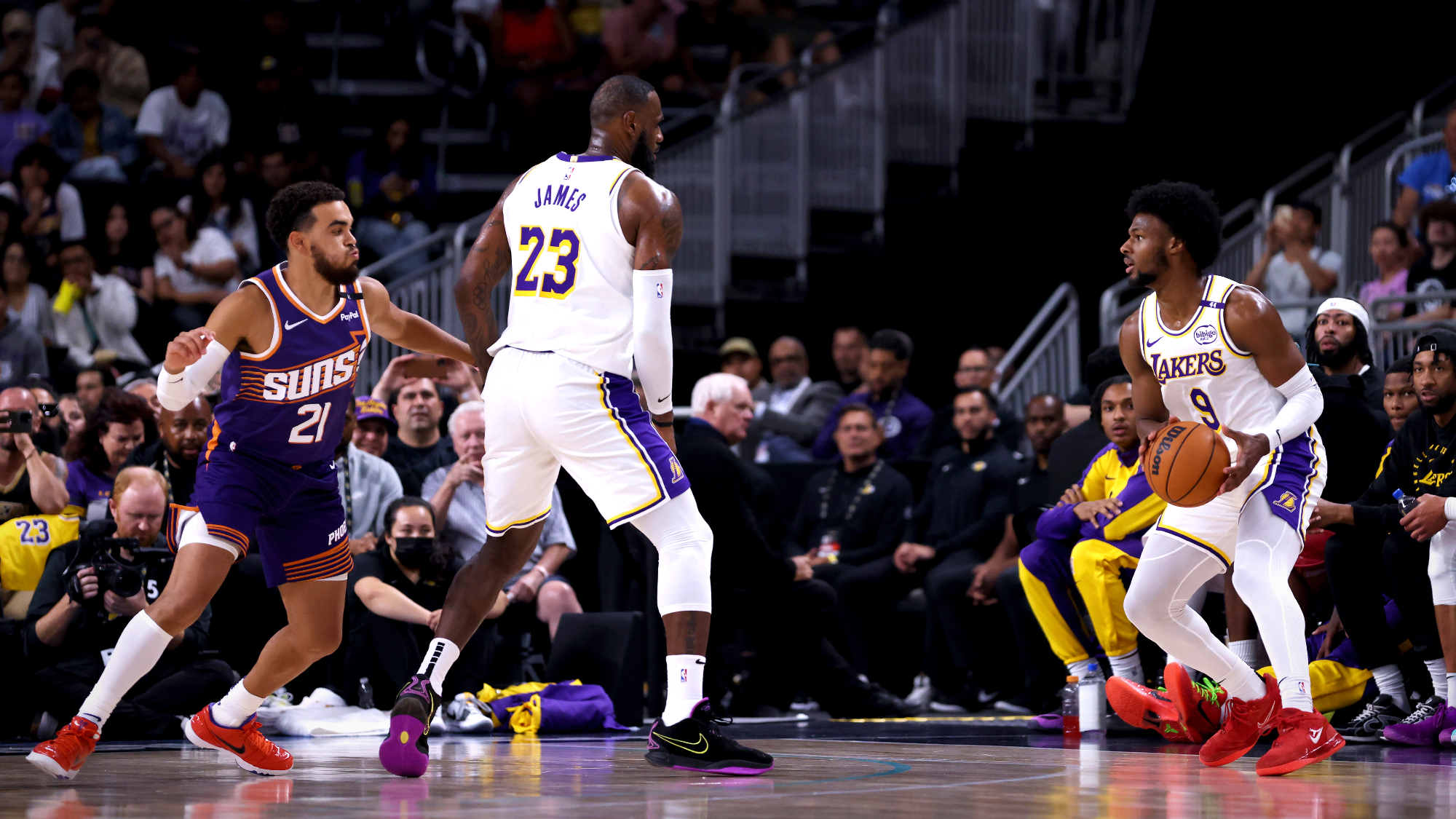 LeBron, Bronny James make dad-son NBA debut
LeBron, Bronny James make dad-son NBA debutSpeed Read Basketball star LeBron James and his son LeBron Jr. made history by playing together in the Lakers' preseason game
-
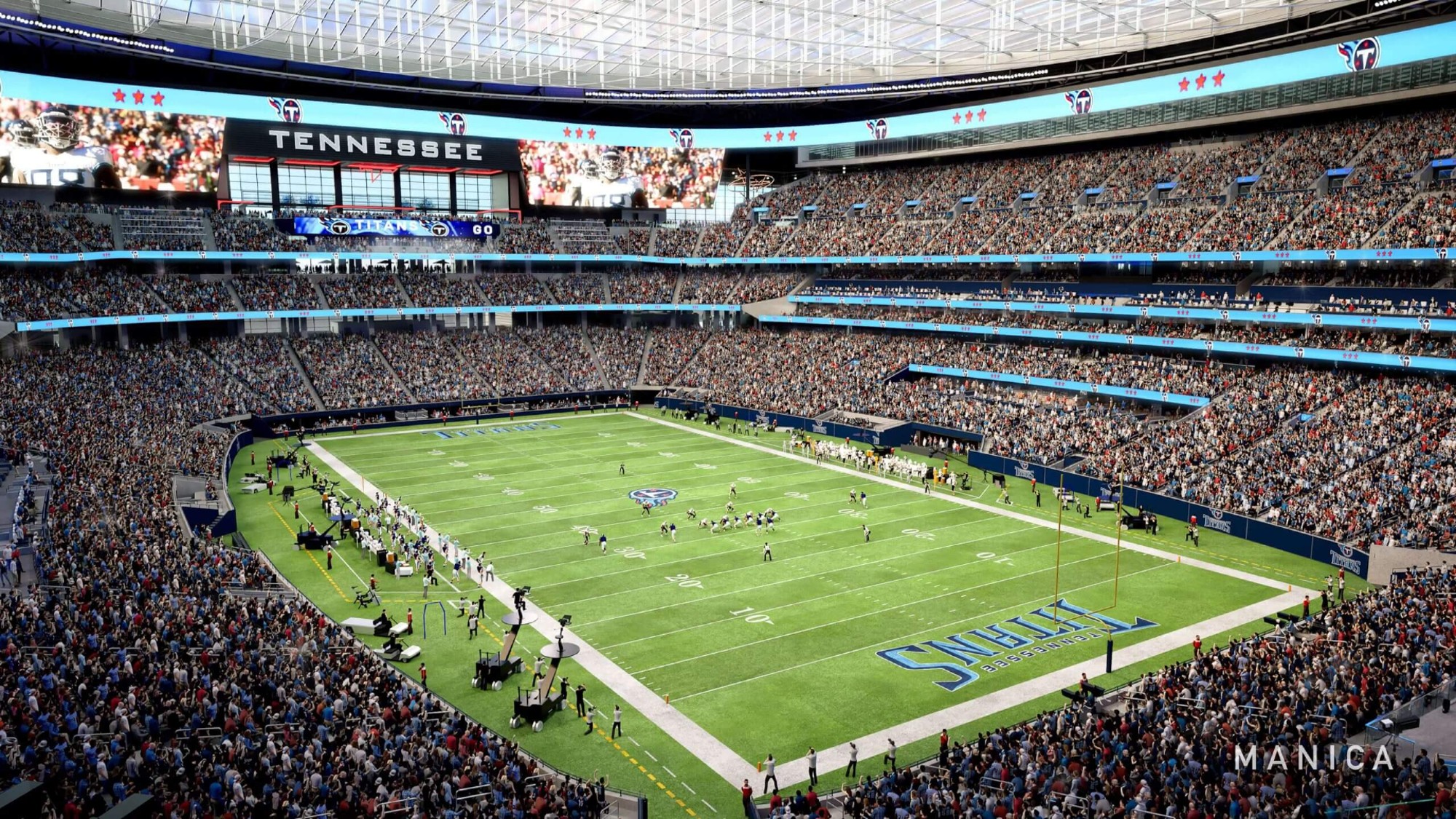 The economics of taxpayer-subsidized stadiums
The economics of taxpayer-subsidized stadiumsIn Depth Shiny new stadiums can end up costing taxpayers billions
-
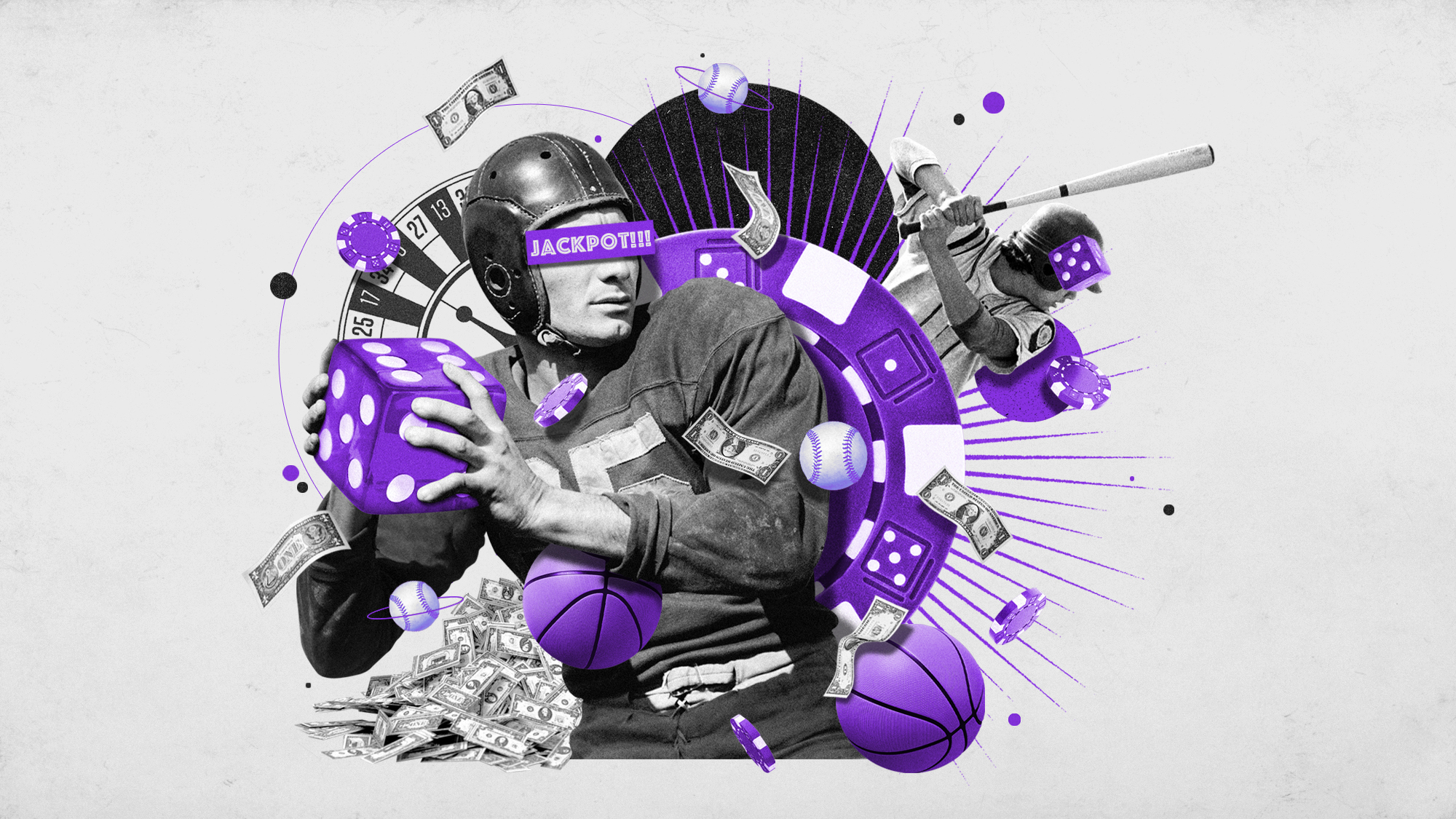 Is legalized betting hurting sports?
Is legalized betting hurting sports?Today's Big Question A 'building avalanche of gambling scandals' threatens competition
-
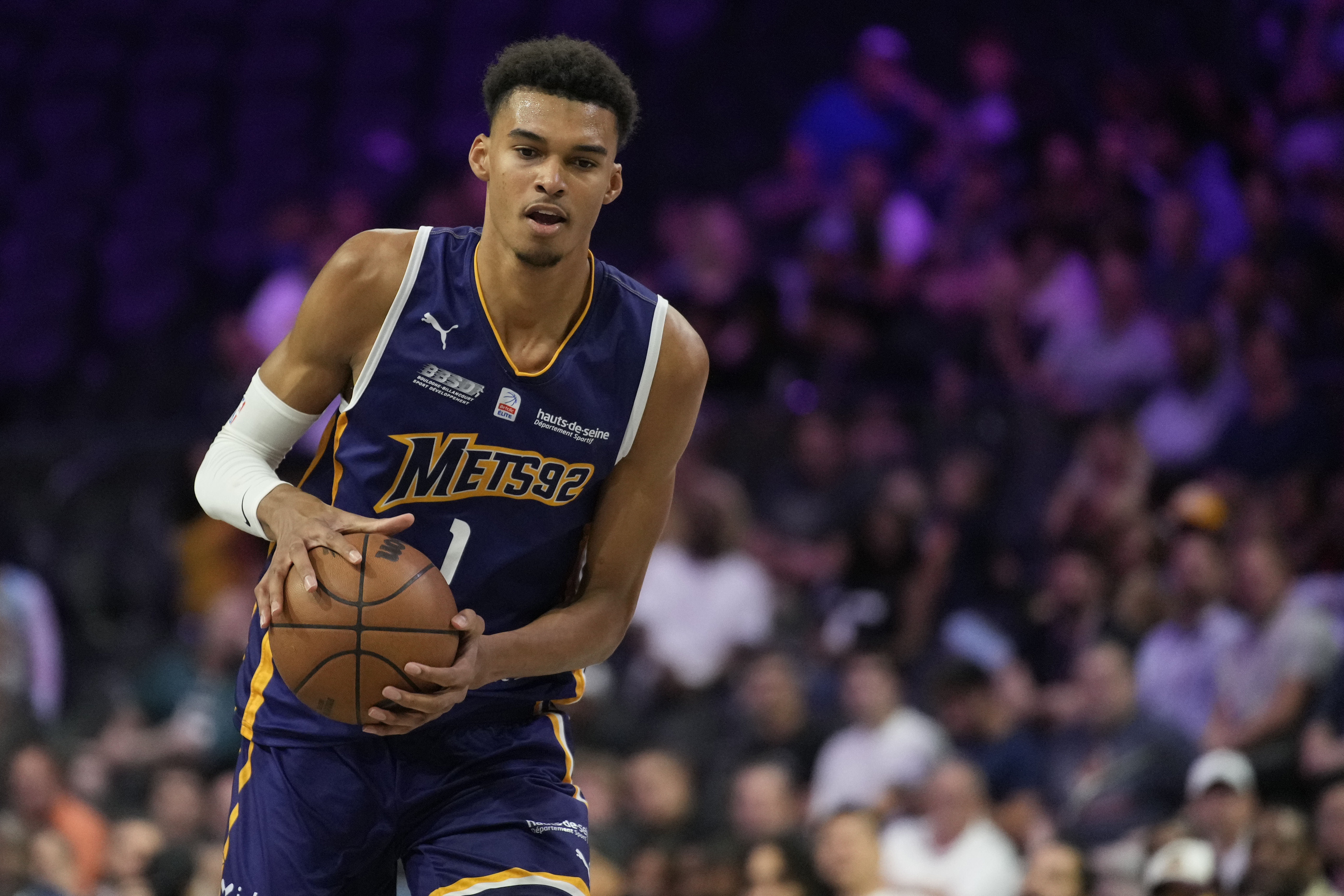 Victor Wembanyama: The French star poised to become the face of the NBA
Victor Wembanyama: The French star poised to become the face of the NBAIn the Spotlight LeBron James called him an "alien" — as a compliment
